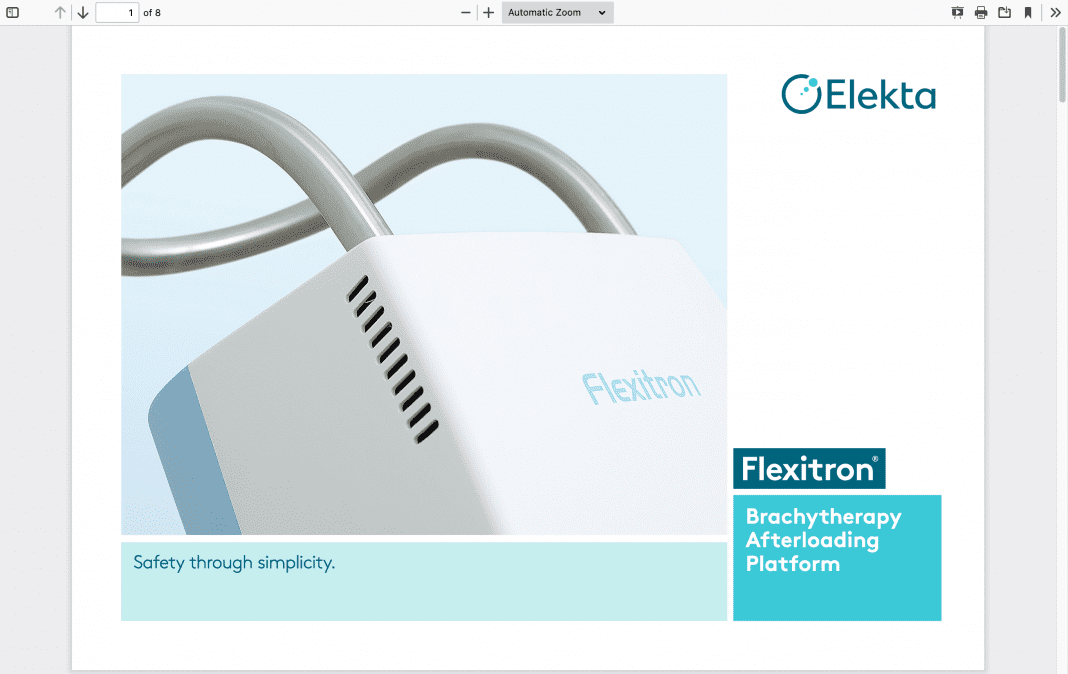Elekta (EKTA-B.ST) announced today that GenesisCare, a leading global provider of integrated cancer care, has ordered 27 Flexitron® brachytherapy afterloader systems, including service agreements.
The cancer treatment devices will allow GenesisCare to continue to invest in the latest world-class technology while providing access to high-quality care to their patients throughout their U.S. centers.
“With Brachytherapy an essential part of the care pathway for many cancer patients, GenesisCare offers this treatment modality across more than [70] locations worldwide,” said Dr. Alvaro Martinez, a leading radiation oncologist at a GenesisCare facility in Michigan, and recent recipient of the prestigious Marie-Curie Medal for his lifetime achievements.
“Brachytherapy is one of the most precise and cost-effective forms of radiotherapy. There are many proven benefits to patients, both on its own and in combination with external beam radiotherapy,” he added. “GenesisCare’s partnership with Elekta makes it easier to improve access for cancer patients and to ensure we can deliver the highest standards of care possible.”
Flexitron is Elekta’s high dose rate (HDR) afterloader, used in almost two-thirds of all brachytherapy centers worldwide in over 100 countries. The latest version of Flexitron, introduced in 2020, sets itself apart from conventional brachytherapy devices through its design, ensuring efficient, safe and effective treatments with fewer manual steps.
“GenesisCare continues to demonstrate its commitment to improving patient outcomes worldwide and Elekta is delighted to play a vital partnering role to achieve this mission,” said Gustaf Salford, Elekta’s President and CEO. “Our vision is to provide access to the best cancer care to patients, and GenesisCare is helping to fulfill this objective by offering high precision radiation therapy in many of its U.S. centers.”
